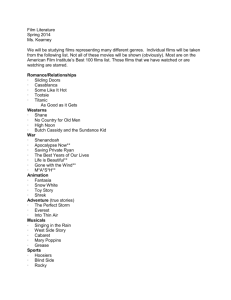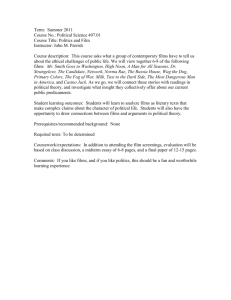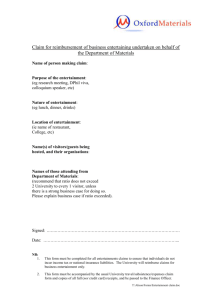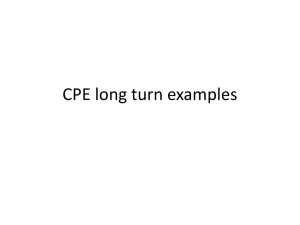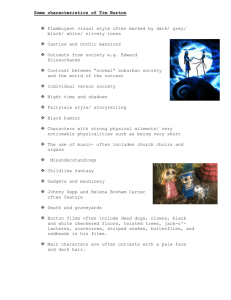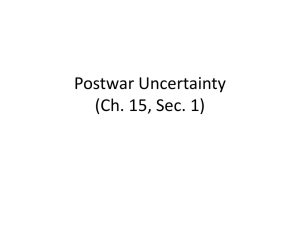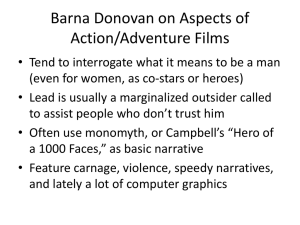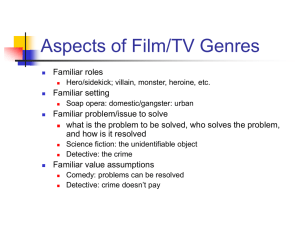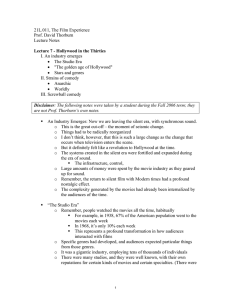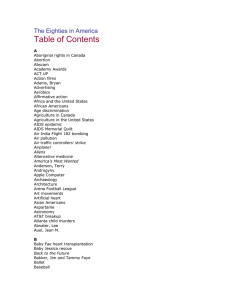Intro. to lit
advertisement
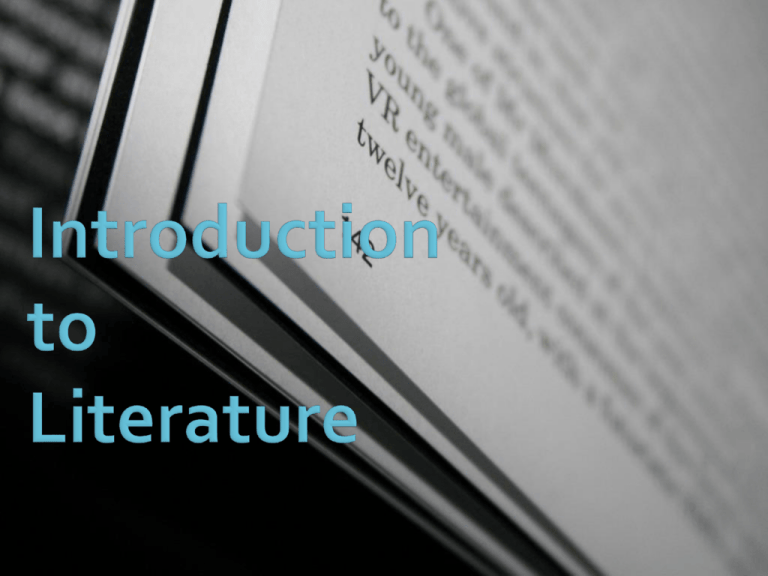
How we make sense of the world How we produce “beauty” Helps us understand others and their sense of the world Helps us make sense of the “big questions” Makes us interesting, well rounded, educated humans Helps us appreciate other experiences Helps us become “culturally literate” (we’re in on the joke when someone makes a literary allusion or reference) Literature Basics When we talk about literature, we can’t help but talk about quality because all literature isn’t the same. *Note though, the next slides present information as if literature is EITHER good or bad, when we know that the issue is more complex. High Culture Art vs. Pop Culture Art In every art form in every culture, there is the art that serves to make us think and the art that serves to entertain us. Have you seen a movie or read a book lately that made you think? Was it entertaining as well? Why do you think independent films so rarely make it to every theater? Examples from Film Audience: mass audience who wants entertainment National Treasure (the action movie) Atonement (the chick-flick drama) Superbad (the adult comedy) Shrek (the children’s comedy) Etc. Audience: specific; those who understand film as art, know jargon, devices, inner workings of field Junebug Cache Some documentaries Many independent films Many films produced on a small budget for the sake of creating an artistic expression Examples from Art Audience: Mass Most advertising art Art from artists like Thomas Kinkade Posters (Kitsch) Desktops Coffee mugs Calendars Clothing Anything mass produced, or produced for the sake of making a profit Audience: A narrower audience; specifically those with appreciation of art or money to purchase it “Fine art” Ceramics, paintings, sculpture, photography, etc. Anything produced for the sake of beauty or expression "Girl with a Pearl Earring“ Van Gogh search results Fast food – mass produced, $ Fine cuisine – audience appreciates art form, $$$$ Fashion—mass produced, $ - $$ Couture – “high fashion,” $$$$ Music – mass produced for radio and profit, FREE Music – “high” music, opera, orchestral, etc., $$ Examples from Literature Audience: A mass audience that desires entertainment or escape The mystery novel The “bodice ripper” romance The spy novel Any fiction or non-fiction piece with a primary goal of entertainment/sales Characters: sound clip - lack complexity - are stereotypes (the ditzy cheerleader, the bratty younger sibling, the bully, the grouchy senior citizen, etc.) Plot: Launches into action without character development Predictable Has a happy, resolved ending (or a cheap ending) Confirms popular beliefs – Doesn’t challenge the reader to think or question So the quality of art is determined by several factors. What is its purpose? Who is the audience? This brings us to an important issue. What is art anyway? You’ll talk about this when you take an art appreciation class—we could spend an entire semester just talking about the nature of art!
